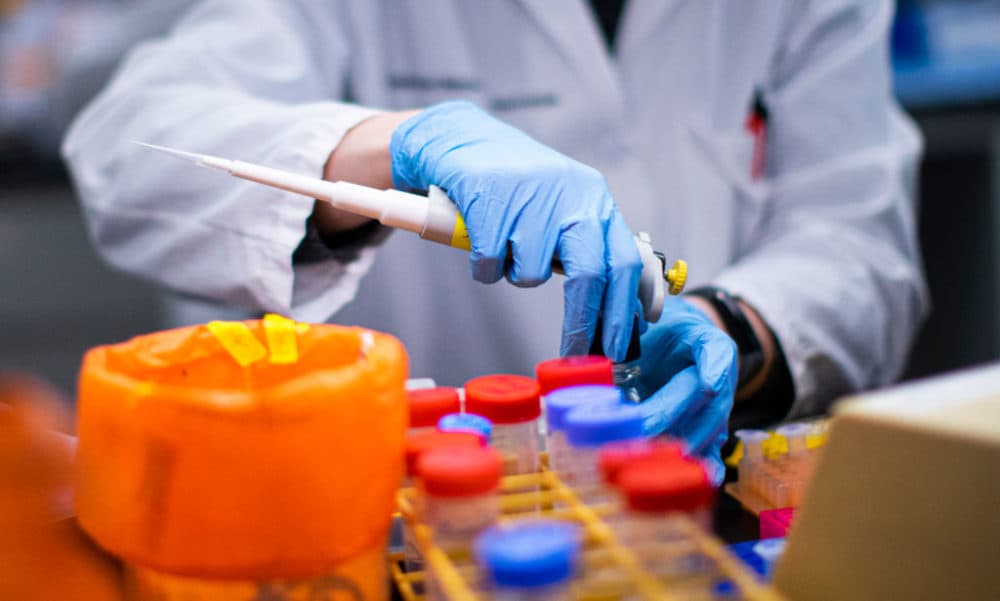Advertisement
Commentary
Opinion: Detecting More Mass. Coronavirus Cases Means Public Health Success, Not Failure

The Massachusetts Department of Public Health has just announced 13 more presumptive cases of the new coronavirus. These cases, combined with earlier detected cases, raise the total number in Massachusetts to 41.
The response from many residents will be fear and panic. But these cases are reflections of local public health and health care system success, not failure.
To date, hotspots of identified coronavirus cases in the United States are in regions that also have strong public health infrastructure. These regions include Los Angeles, Seattle, New York City, the suburbs of Washington D.C., and now Boston.
The lack of known coronavirus clusters in other parts of the country are more likely to reflect a failure of detection than the absence of infection.
The Lack of Testing
As of last week, Massachusetts had only tested 12 people since January 1, 2020. The White House recently announced a shortage of test kits. Vice President Pence, who is coordinating the national response to the virus, said, “We don't have enough tests today to meet what we anticipate will be the demand going forward.”
The available information, including an investigation by The Atlantic, suggest the United States is significantly behind in testing and identifying cases. In a recent interview, former Centers for Disease Control and Prevention Director Dr. Thomas Frieden said, “The CDC got this right with H1N1 and Zika, and produced huge quantities of test kits that went around the country. I don’t know what went wrong this time.”
Also worrying is the CDC’s outright refusal to publish the number of infections nationally and by state as well as to provide the denominator – the number of tests done across the U.S. Without such data, understanding the scope of the epidemic and basic epidemiology of the novel coronavirus becomes something of a state secret.
Advertisement
It would also be helpful for officials to share information about the symptoms and severity of identified cases. In the context of a pandemic, open and transparent sharing of data is vital, both for scientific research and for public understanding of the crisis.
The Meaning of Detected Cases
Outside of the United States, the rate of testing has dwarfed the American response. For example, as of the most recent available data on March 2, South Korea had performed 109,591 tests among a population of 51 million individuals (2,138 tests per million people). Drive-through clinics in South Korea were set up to test people by the thousands. In Italy, 23,345 tests were performed among a population of 60 million (386 tests per million people). These testing efforts are not only more robust than those in America but also were started in a more timely manner.
If we can dramatically increase testing for the novel coronavirus quickly, we will undoubtedly see an enormous increase in reported disease burden from the coronavirus. We should expect in the coming days to see many more cases announced in Massachusetts, as is occurring in other parts of the United States.
Rather than alarm people, this trend should provide comfort that public health officials are doing their job: tracking down and identifying cases expeditiously so that patients can be treated and communities can be protected. But this is going to take resources, coordination and effective management.
The CDC stumbled out of the gate and now needs to right itself, to help states like Massachusetts understand what is happening on the ground. We can beat this coronavirus, but thoughtful planning and execution on the part of public health agencies and health care providers will determine how successful we are.
Adam Beckman (@adamlbeckman) and Suhas Gondi (@suhas_gondi) are medical students at Harvard Medical School. Dr. Gregg Gonsalves (@gregggonsalves) is a 2018 MacArthur Fellow, Assistant Professor at the Yale School of Public Health, and co-director of the Yale Global Health Justice Partnership. Dr. Howard Forman (@thehowie) is a Professor of Public Health (Health Policy), Management, Economics, and Radiology at Yale.